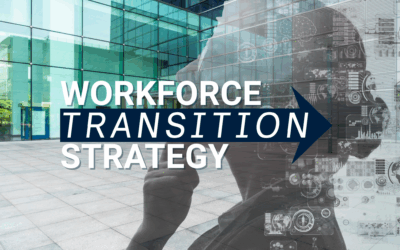Let’s talk about job loss and the strong effect it can have on one’s mental health.
The pandemic has affected our lives in a dramatic fashion. One pertinent shift that has taken place is the way that employees desire to interact with their work.
For the very first time, employers were able to see into their employees’ homes and interact with them in a nonprofessional setting. The separation of work and personal life has become increasingly blurred. Conversations about personal struggles have become more and more routine due to the intimacy that was created by our virtual interactions. Even though the majority of people were working remotely, many had the ability to get to know their colleagues on a much more personal level than when they were working in the same office.
In the same breath, many employers had to make the difficult decision to have a reduction in their workforce due the upheaval of the pandemic. This in turn has put many employees at increased stress levels that are perpetuated by macroeconomic conditions.
One of the most challenging issues that people face in their lives is when they have the feeling that they are unable to control the outcome of their efforts.
 Humans desire to be in control of their income, relationships, health, and their family’s well being. These feelings are distinctly present when individuals are faced with changes that were unexpected such as death of a loved one, divorce or a breakup, or losing a job. In fact, research shows (Journal of Applied Psychology, Vol. 90, No.1, 2005) that unemployment can have a devastating impact on one’s mental and physical health even for those who do not experience financial stress. People who are out of work for six months or longer experience the worst mental health outcome. There is extreme isolation when individuals lose their job. For many the loss of their corporate position is equated to loss of an identity.
Humans desire to be in control of their income, relationships, health, and their family’s well being. These feelings are distinctly present when individuals are faced with changes that were unexpected such as death of a loved one, divorce or a breakup, or losing a job. In fact, research shows (Journal of Applied Psychology, Vol. 90, No.1, 2005) that unemployment can have a devastating impact on one’s mental and physical health even for those who do not experience financial stress. People who are out of work for six months or longer experience the worst mental health outcome. There is extreme isolation when individuals lose their job. For many the loss of their corporate position is equated to loss of an identity.
Employers can have a powerful impact on their ex-employees’ lives by how they take care of them even after they are no longer part of the organization.
Not only can organizations provide the separating individual with monetary support through a severance, but they can also equip them with the skills, tools, and support they need through career transition services. A program that provides them with coaching, peer support, and experts in the industry provides individuals with confidence and mental health to conduct an effective job search.
 A survey by Mental Health America (MHA) done in September 2020, completed by 5,000 employees across 17 industries, revealed that 56% of employees reported that they spend time actively looking for a new position, compared to 40% in 2018. Employees are not only seeking higher wages, they are looking for an organization that provides them with an all encompassing benefits package. Employees want to work for a company that not only cares for them while they are employed there, but also for the alumni that have left the organization due to an involuntary or voluntary basis. In a highly competitive job market and lowest labor force participation since 1977 (Bureau of Labor Statistics), the organizations that will support their employees throughout their entire lifecycle will not only attract and retain their employees, but create a culture where people are always worth the investment.
A survey by Mental Health America (MHA) done in September 2020, completed by 5,000 employees across 17 industries, revealed that 56% of employees reported that they spend time actively looking for a new position, compared to 40% in 2018. Employees are not only seeking higher wages, they are looking for an organization that provides them with an all encompassing benefits package. Employees want to work for a company that not only cares for them while they are employed there, but also for the alumni that have left the organization due to an involuntary or voluntary basis. In a highly competitive job market and lowest labor force participation since 1977 (Bureau of Labor Statistics), the organizations that will support their employees throughout their entire lifecycle will not only attract and retain their employees, but create a culture where people are always worth the investment.
If you are looking for ways to build a better employee culture and have a desire to minimize the overall stress of a RIF, contact us today. We have many options we would love to discuss with you.




